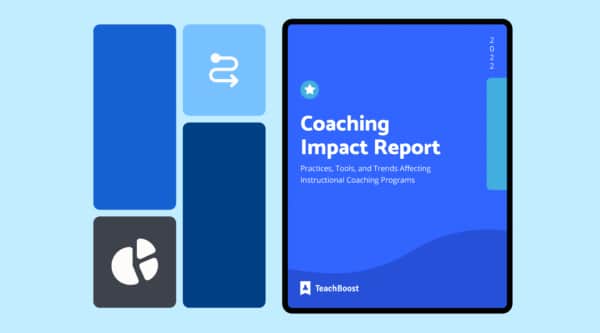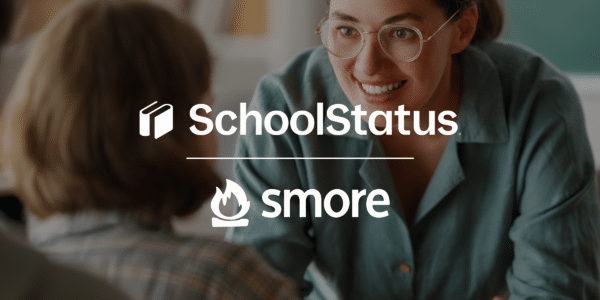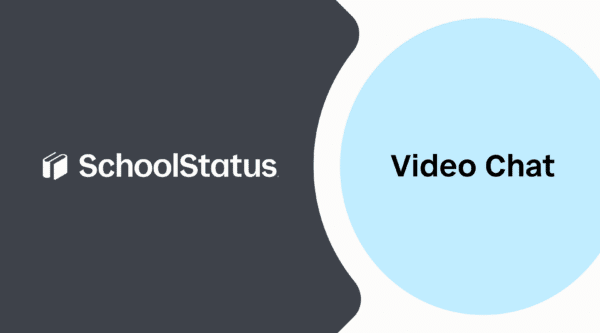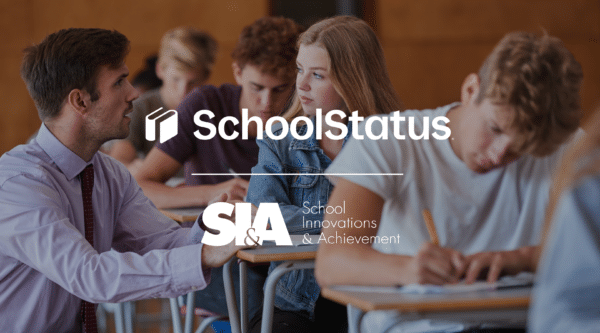
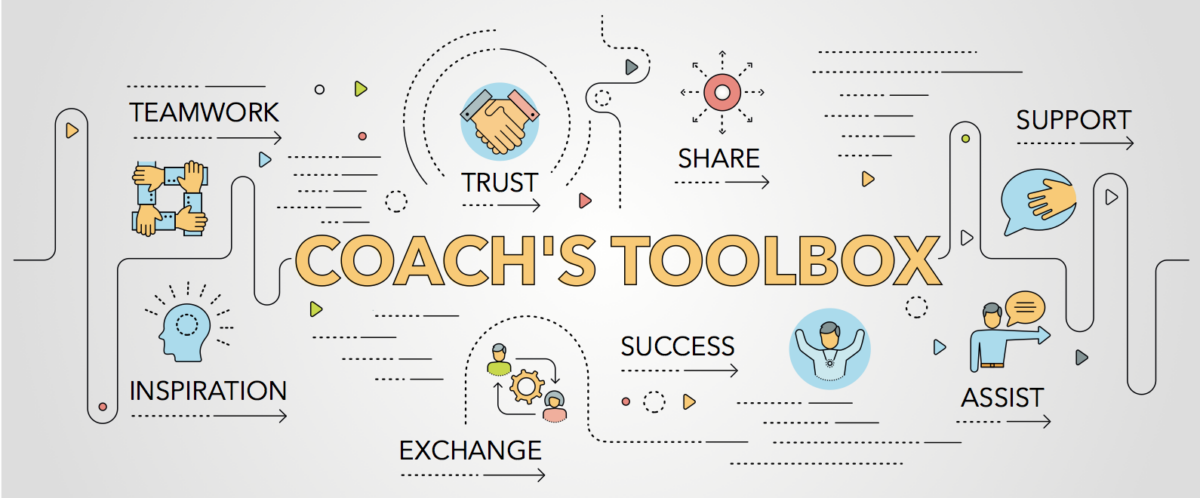

Shannon Hamm, instructional coach in Illinois, dives into ways coaches can support teachers during all phases of parent-teacher conferences.
L
et’s face it, if you’re in a traditional instructional coaching role, there are perks that come with the job. You no longer have endless parent emails and phone calls to make, nights spent grading papers, or even countless hours spent planning for upcoming lessons. But if you’re like me, you’re still required to be at your building during normal school hours and to attend events like Back to School Day and parent-teacher conferences.
How can we help at these events, or what’s the most impactful role a coach can have during parent-teacher conferences?
The Student-Led Conference Steps
Instructional coaches can play an integral role in the success of parent-teacher conferences and I like to I think about my support for teachers during them as three distinct steps. First, prior to conferences, I support teachers by preparing them to have the most successful conferences possible. Second, I support teachers during conferences and provide a hand when necessary. Finally, I support teachers after conferences by processing difficult conversations and finding resources for them to send home to parents. Let’s dive into the steps more fully below.
Pre-Conference
Prior to parent-teacher conferences, I reflect on all of the preparation that goes into conversations with parents about their students. During these conversations I provide a “Speedy PD”—a PD session that lasts for about 15-20 minutes covering several tips for teachers around parent-teacher conferences. Some topics we cover are related to the organization necessary for successful conferences, how to have student-led conferences, and even student goal setting and reflection forms that can be used to discuss progress. Additionally, I make sure that I have a class set of copies ready for teachers to take when the training is over.
Once I meet with the teacher, we’ll work on getting organized for conferences together and post their schedule outside of their room, along with books and activities for kids to do while they wait for their turn. Then, we’ll talk about setting a timer to stay on schedule and ways for students to prepare for the conference themselves (e.g., reflection logs on their personal goals). In addition, I provide several examples of what student-led conferences look like, often include a video example, and provide a variety of forms that can be used.
Last year, while doing this training, teachers began to share what they use with one another and they all left with several options to choose from.
Preparing for the “Types” of Parents
Prior to the conference, I also like to discuss the different parent personalities that teachers will encounter and how to manage conversations with them.
- The educator: the parent who is also an educator and compares everything you do to their building.
- The negotiator: the parent who negotiates what should and should not be written on a report card.
- The cryer: the parent who has too much going on in his or her own personal life and spends the conference in tears.
There are several more examples of personalities teachers will encounter, and knowing all of them can help prepare a teacher for various surprises!
During the Conference
Conference time itself as a coach can be different per building, but each year I make sure that I provide humor and something the teachers will enjoy throughout their busy night. Last year, for instance, I provided water bottles with a photoshopped picture of me on Uncle Sam’s face saying, “I want you to have a great parent teacher conference!” I also provided mints for them to get through the night. At a different conference later in the year, I provided an ice cream sundae bar in the teacher’s lounge so that on a quick break, teachers who came down to the lounge had a moment of peace and quiet while they enjoyed a sweet treat.
This year I have a co-instructional coach and together, we created a funny meme with our faces that said, “That Face You Get When Your TLCs Put Cake in the Lounge! We Hope Your Conferences are a Piece of Cake!” We put this meme on a cake as an edible image and the teachers loved it! As a final gesture of our support, we sent an email to teachers saying we’d have our walkie talkies on and we were available for crowd control, to run them a drink or a piece of cake, or to come and knock on their door at a specific time when they were worried about an especially chatty parent. These small gestures of kindness go a long way.
While the conferences were going on, we also met with several teams of teachers, or individual teachers, to have coaching conversations. Often when we are in a room, teachers would ask us to join them during a conference with a parent. When teachers are not requesting our services, my co-instructional coach and I utilize the time we have during the conference to plan for future professional development and role play coaching conversations together.
After Conferences
After parent-teacher conferences I find myself touching base with the teachers I’m coaching. We’ll discuss how conversations went and how student-led conferences felt for them. We share survey result data that parents completed about conferences and I support them in finding additional resources that parents request. For those who had difficult conversations, we process the conversation and what the next steps are for that teacher. More importantly, we reflect together on what they will, or will not, do at the next parent teacher conference. In the end, it’s the formative assessment to my “Speedy PD” that I provide prior to conferences.
Final Note
Being an instructional coach is one of the best (and hardest) jobs I’ve ever had! If you’re new to coaching, you often find yourself struggling with the extra time that you have now that you are not planning, grading, and emailing parents around the clock. I know that I sometimes feel guilty about my down time and have had to work through this as a second year coach. The key to being supportive and guiding teachers is to always ask the question, “What would I have wanted when I was in that same situation?” Usually for me it comes down to smiles and food! I also always liked knowing that someone was there for me to support me along the way. Hopefully, these tips for your next parent-teacher conferences will help you to feel supportive and available for your teachers!
About our Guest Blogger
Shannon Hamm is a mother of five and has been an educator for over 17 years. Her experiences include teaching first grade, second grade, self-contained gifted; serving as assistant principal, director of an early childhood education program, principal of a pre-k through 8th grade building, and instructional coach; and volunteering as homeschool mom.
She earned her B.S. in Elementary Education and Special Education at Lewis University in Romeoville, IL in 2001, an M.S. in Teaching and Leadership from St. Xavier University in Chicago, IL in 2004, and a C.A.S in Administration in 2006 from Lewis University. Currently, she’s working towards her Educational Doctorate in Teaching and Leadership with an emphasis on social justice. Shannon advocated for instructional coaches within her district and there are now 23 coaches at the elementary level. Her current position is a teacher learning coach (TLC) at a pre-k through 5th grade building.
Follow Shannon’s reflections and tips at her personal blog!
{{cta(‘352a410e-db79-4f33-a482-d301e8041965′,’justifycenter’)}}
Stay Connected
News, articles, and tips for meeting your district's goals - delivered to your inbox.





